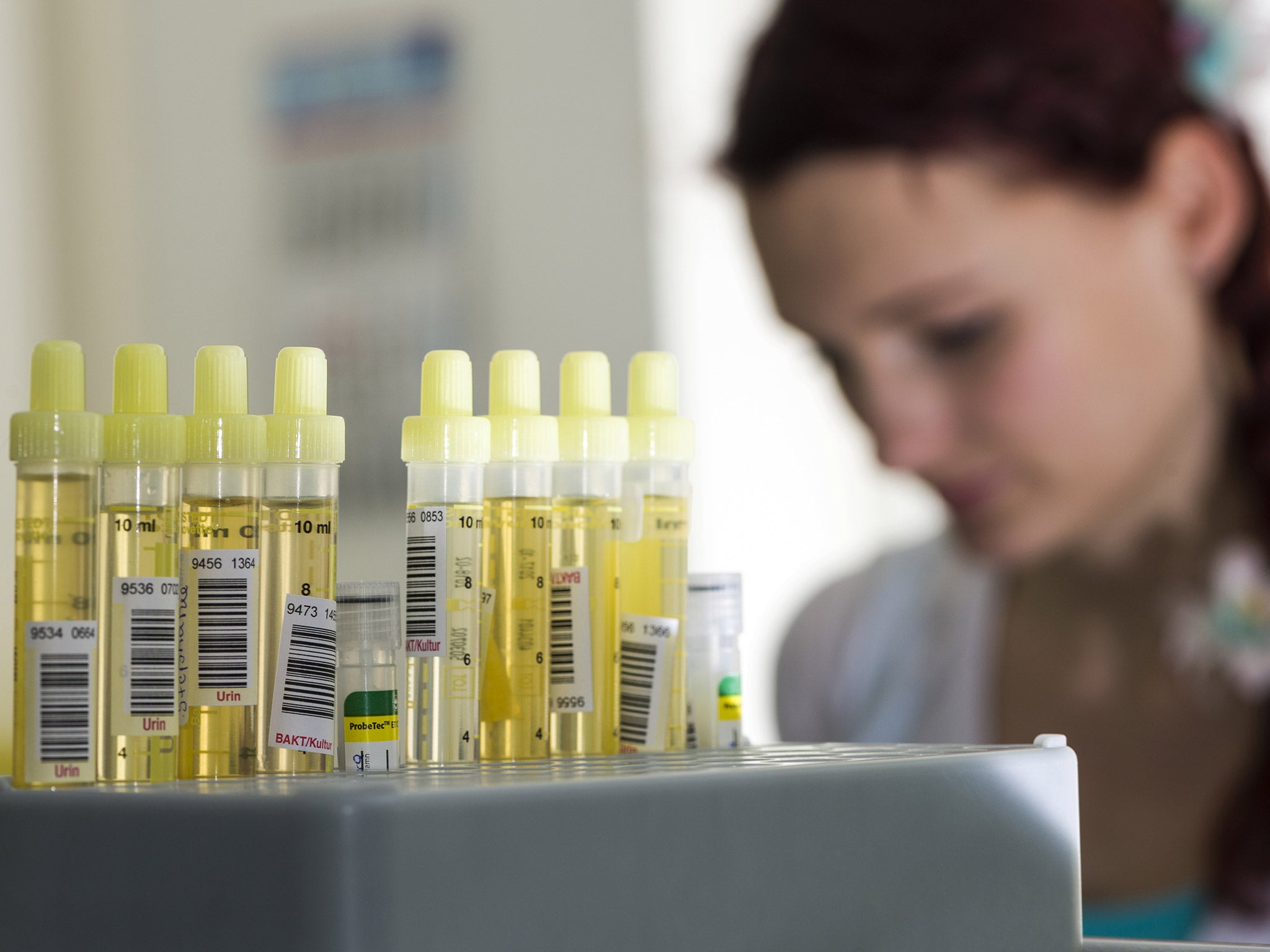Welfare recipients are less likely to be drug users than average American, results show
Critics say the thousands of dollars spent on drugs-testing poor in "shaming" regime could be better spent elsewhere

Your support helps us to tell the story
From reproductive rights to climate change to Big Tech, The Independent is on the ground when the story is developing. Whether it's investigating the financials of Elon Musk's pro-Trump PAC or producing our latest documentary, 'The A Word', which shines a light on the American women fighting for reproductive rights, we know how important it is to parse out the facts from the messaging.
At such a critical moment in US history, we need reporters on the ground. Your donation allows us to keep sending journalists to speak to both sides of the story.
The Independent is trusted by Americans across the entire political spectrum. And unlike many other quality news outlets, we choose not to lock Americans out of our reporting and analysis with paywalls. We believe quality journalism should be available to everyone, paid for by those who can afford it.
Your support makes all the difference.Poor US citizens who are drugs-tested before they can receive benefits are less likely to use drugs than the average American, research has found.
The state of Tenessee, like Montana, Texas, Maine, Michigan, Mississippi and West Virginia, forces applicants to the Temporary Assistance for Needy Families (TANF) programme to take a urine test if they disclose they have used narcotics in the past.
And the results are in: of all the applicants, less than 1%, or 0.19, are drug-users. Amongst average Americans, meanwhile, 9.4% are regular drug users, which makes members of poor families in need of assistance officially much less likely to be drug users than the rest of the nation.
Indeed, research has shown that about 70% of drug users are in employment, showing it is more a luxury good than the preserve of the destitute and homeless as is so often depicted, according to findings by Canada's Center for Addiction and Mental Health.
These seven states have spent nearly $1million on the testing regime, reported ThinkProgress in February this year. Critics have said it is a waste of time and money, and is drawing funds away from effective rehabilitation projects.
And by being shamed about a possible drug habit, people in need may also be less likely to seek help, one policy expert has said.
"If people are afraid they'll lose their benefits if they admit to using drugs, it makes it hard for them to say, 'hey, actually I have this issue'," Elizabeth Lower-Basch, a policy co-ordinator at non-profit CLASP, told ThinkProgress.
Tennessee first implemented the test-based system in 2014 and has much Republican support. Three questions on narcotics use were added to the general questionaire, and anyone who answered in the affirmative has to have a urine test or have their application thrown away.
If they fail the test (which, out of that cohort, only 11% did this year), they had to go on a drug treatment programme then repeat the test, or lose their benefits for six months.
Testing all welfare applicants across the board was ruled unconstitutional, hence the screening process through questions, ThinkProgress has previously reported.
It could be seen as an embarassing result for Tennessee, which claims that the system helps root out drug users abusing the welfare system whilst also getting them on drug treatment programmes.
Yet those centres often have long waiting lists, and funding for them has decreased in real terms in recent years.
Ms Lower-Basch added: "The money could certainly be going on other things if it wasn't going on drug testing."
Join our commenting forum
Join thought-provoking conversations, follow other Independent readers and see their replies
Comments